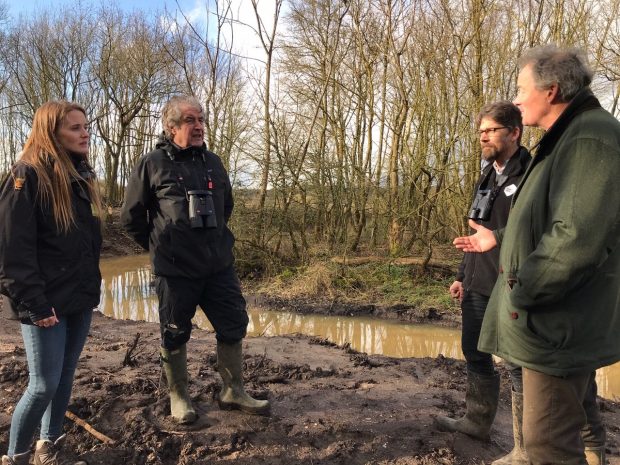
There is positive coverage in the Telegraph of the roll out of Natural England’s new innovative ‘District Level Licensing’ scheme to conserve great crested newts across the country.
Natural England Chair Tony Juniper and interim Chief Executive Marian Spain will today visit a pond restored in Essex for the scheme. During the visit, Tony Juniper will be interviewed by BBC Radio Essex and the ENDS Report.
Great crested newts have seen dramatic declines in their populations over the last 60 years, with approximately 50% of ponds in the UK lost in the 20th Century. Natural England’s ‘District Level Licensing’ scheme better protects this iconic, orange-bellied amphibian by working at a landscape scale to create new habitats in locations that will benefit the species, whilst also helping to ensure homes are built and local authorities can deliver their plans.
Tony Juniper, Chair of Natural England said:
Our innovative new licensing scheme means that there is no need for a zero sum game between wildlife and development. It provides a way for developers to work with others to create bigger, better, and more joined-up habitat for this iconic and threatened species.
Alongside our local partners, we have already created and restored hundreds of ponds for newts to thrive in, proving that development can be a driver for nature recovery.
The District Level Licensing scheme is currently already available across 32 local authorities in Woking, South Midlands, Kent and Cheshire. Today’s move means that developers and consultants will be able to access the scheme across a further 37 local authorities in Essex, Wiltshire, Shropshire, Greater Manchester, South Midlands, and parts of Somerset and Gloucestershire, more than doubling its availability.